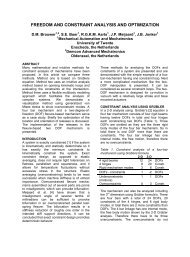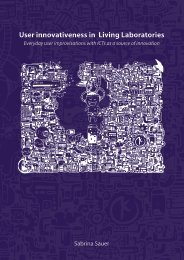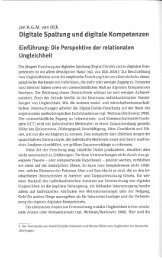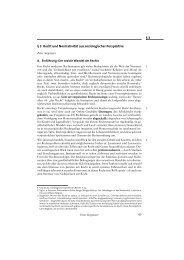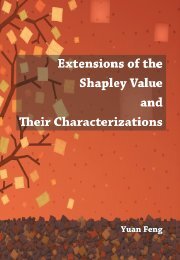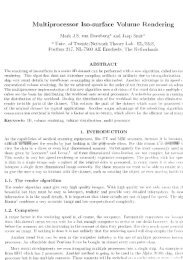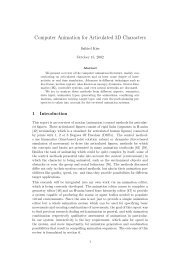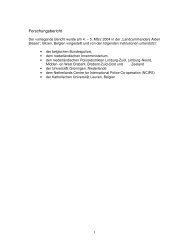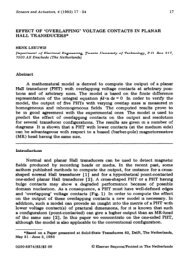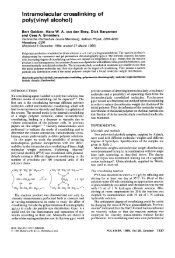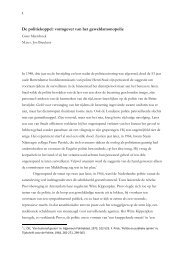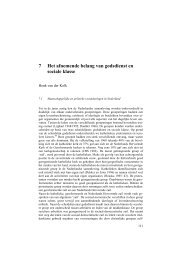Innovation and institutional change: the transition to a sustainable ...
Innovation and institutional change: the transition to a sustainable ...
Innovation and institutional change: the transition to a sustainable ...
Create successful ePaper yourself
Turn your PDF publications into a flip-book with our unique Google optimized e-Paper software.
Conclusions 221<br />
taken place at a cross-national level as national electricity markets opened.<br />
This system is also deriving legitimacy based on high expectations for<br />
integration of large-scale renewable energy resources such as off-shore wind<br />
farms, co-combustion of coal-fired power plants with biomass <strong>and</strong> biomass<br />
based power plants. Even <strong>the</strong> nuclear option might re-emerge in <strong>the</strong> light of<br />
<strong>the</strong> Kyo<strong>to</strong>-pro<strong>to</strong>col <strong>and</strong> long-term security of supply. On <strong>the</strong> o<strong>the</strong>r h<strong>and</strong><br />
liberalisation has triggered a range of new products, services <strong>and</strong><br />
technologies, frequently in combination with <strong>the</strong> shift <strong>to</strong>wards an<br />
information society, <strong>and</strong> sometimes at ra<strong>the</strong>r local dem<strong>and</strong>-oriented scales.<br />
Here a process <strong>to</strong>wards integration of even more flexible <strong>and</strong> decentralised<br />
systems is a possibility, such as micro-cogeneration at <strong>the</strong> level of<br />
households. Along <strong>the</strong>se two trends, we contend that cogeneration <strong>and</strong> green<br />
electricity are ra<strong>the</strong>r firmly rooted <strong>and</strong> <strong>institutional</strong>ised in <strong>the</strong> current<br />
electricity system <strong>and</strong> wider fields of society. Liberalisation has ended <strong>the</strong><br />
highly favourable climate for cogeneration, but institutions, rules <strong>and</strong> <strong>the</strong><br />
energy saving paradigm has stabilised its position within <strong>the</strong> electricity<br />
system <strong>and</strong> broader <strong>institutional</strong> arrangements. On <strong>the</strong> o<strong>the</strong>r h<strong>and</strong>,<br />
liberalisation has stimulated <strong>the</strong> market for green electricity although its<br />
sustainability profile has significantly weakened.<br />
If we highlight <strong>the</strong> specific role of policies <strong>and</strong> policy ac<strong>to</strong>rs in <strong>the</strong> cases of<br />
green electricity <strong>and</strong> cogeneration we argue that policy action has been <strong>to</strong>o<br />
much blinded by <strong>the</strong> evolving <strong>institutional</strong> logics <strong>and</strong> its apparent success,<br />
which led <strong>to</strong> reinforcing already existing positive feedbacks in <strong>the</strong> short<br />
term, while loosing sight of opportunities <strong>to</strong> develop <strong>and</strong> maintain long-term<br />
conditions for <strong>the</strong> concepts such as <strong>to</strong> redirect <strong>the</strong> system of electricity<br />
production <strong>and</strong> consumption on<strong>to</strong> a more <strong>sustainable</strong> course. The effect of<br />
fundamental <strong>institutional</strong> <strong>change</strong>, liberalisation, has led <strong>to</strong> a redefinition of<br />
<strong>institutional</strong> logics in both cases <strong>and</strong> has been underestimated. Leverage<br />
potential in <strong>the</strong> path <strong>to</strong>wards a more <strong>sustainable</strong> electricity system has not<br />
been fully exploited.<br />
8.4 Revisiting <strong>the</strong>oretical approaches<br />
This section reviews appropriateness of a range of <strong>the</strong>oretical approaches<br />
that were presented in chapters two <strong>and</strong> three in <strong>the</strong> light of <strong>the</strong> empirical<br />
analysis of <strong>change</strong> in <strong>the</strong> electricity system.<br />
Rogers’ diffusion of innovations<br />
Rogers’ (1995) work syn<strong>the</strong>sises studies about <strong>the</strong> diffusion of innovations<br />
<strong>and</strong> has developed conceptual frameworks for underst<strong>and</strong>ing innovation



